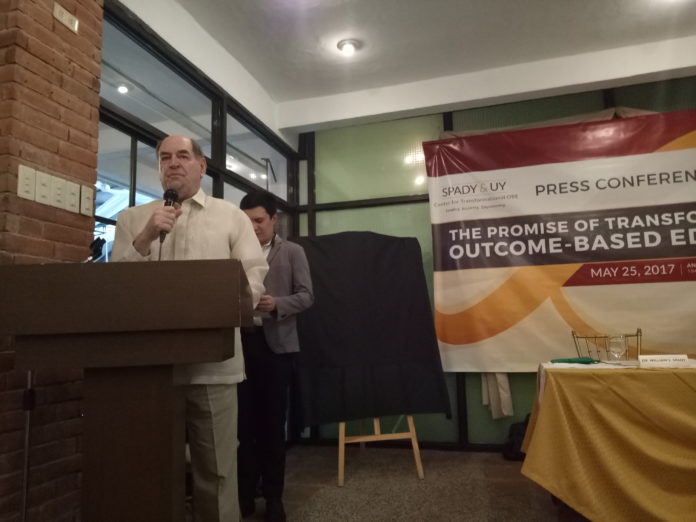SCHOOLS’ preoccupation over grades may be discouraging students from learning, the “Father of Outcomes-Based Education” has said.
Sociologist William Spady urged teachers to focus on developing students’ skills instead of scoring exams, in a news conference in Quezon City last May 25.
“The first thing they need to do is examine how their standards and grading system really invites or disinvites learning success for students,” Spady told reporters.
Spady said the traditional grading system should no longer be used to measure a student’s performance in school.
“The whole thing about grading is not based on what can you do, but it is based on what are you doing in relation to other people doing your time and other stuff,” he said.
At the same time, students shouldn’t obsess with grades and instead shift their orientation toward developing skills.
With Outcomes-Based Education or OBE, students use their time creatively and productively as it encourages institutions to pursue imaginative ways of organizing instructions, Spady said.
The Commission on Higher Education (CHEd) ordered the implementation of OBE in Philippine universities and colleges in 2012 under CHEd Memorandum Order No. 46.
UST began revising course syllabi to follow the OBE format in Academic Year 2013-2014, with professors aligning teacher-learner activities and learning outcomes with course content.
Four principles
Spady called on higher education institutions to apply the four principles of OBE, namely: “clarity of focus of significance,” “expanded opportunity for students to succeed,” “high expectations for quality performance,” and “design down from where you want to end up.”
“Quality results that are produced by the universities are going to depend on how well are they going to implement those principles that really make OBE powerful and effective,” he said.

















